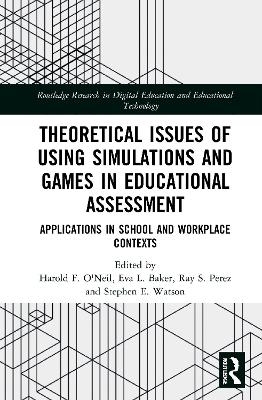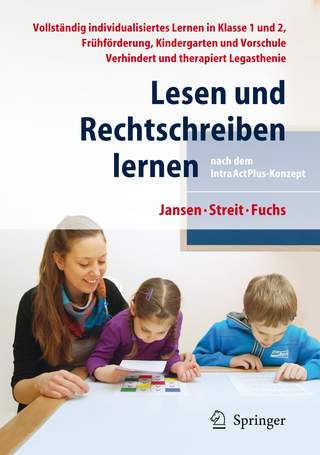
Theoretical Issues of Using Simulations and Games in Educational Assessment
Routledge (Verlag)
978-1-032-05767-5 (ISBN)
Presenting original studies and rich conceptual analyses, this volume reports on theoretical issues involved in the use of simulations and games in educational assessment. Chapters consider how technologies can be used to effectively assess, modify, and enhance learning and assessment in education and training.
By highlighting theoretical issues arising from the use of games and simulations as assessment tools for selection and classification, training, and evaluation across educational and workplace contexts, the volume offers both broad conceptual views on assessment, as well as rich descriptions of various, context-specific applications. Through a focus that includes both quantitative and qualitative approaches, policy implications, meta-analysis, and constructs, the volume highlights commonalities and divergence in theoretical research being conducted in relation to K-12, post-secondary, and military education and assessment. In doing so, the collection enhances understanding of how games and simulations can intersect with the science of learning to improve educational outcomes.
Given its rigorous and multidisciplinary approach, this book will prove an indispensable resource for researchers and scholars in the fields of educational assessment and evaluation, educational technology, military psychology, and educational psychology.
Harold F. O’Neil is Professor of Educational Psychology and Technology in the Rossier School of Education, University of Southern California, US. Eva L. Baker is a Distinguished Professor at UCLA and founding Director of CRESST, US. Ray S. Perez is a Program Officer of the Cognitive Science of Learning Program, Office of Naval Research, US. Stephen E. Watson is Chief Inventor, Affinity Associates LLC, US.
PART 1 THEORETICAL FRAMEWORKS AND ARCHITECTURE; 1 Assessment Principles for Games and Innovative Technologies; 2 Assessment of Transfer in Games and Simulations; 3 Assessing Intrapersonal and Interpersonal Competencies With Games and Simulations; 4 An Assessment Framework for Measuring Statistical Thinking; 5 Expert Policy Capture for Assessing Performance in Simulation-Based Training and Games; 6 Fostering and Assessing Students’ Creativity and Critical Thinking: Bringing Games and Simulations Into Play; 7 Digital Twin-Enabled Game-Based Simulation Architecture and Testbed for Training and Assessment; PART 2 PSYCHOMETRICS; 8 It’s Game Day in Large-Scale Assessment: Practical Considerations for Expanded Development and Use of Simulations and Game-Based Assessment in Large-Scale K–12 Testing Programs; 9 Psychometric Principles, Opportunities, and Associated Challenges in Simulation- and Game-Based Assessment Through the Lens of a Four-Space Framework of Task Design
| Erscheinungsdatum | 06.08.2021 |
|---|---|
| Reihe/Serie | Routledge Research in Digital Education and Educational Technology |
| Zusatzinfo | 15 Tables, black and white; 20 Line drawings, black and white; 7 Halftones, black and white; 27 Illustrations, black and white |
| Verlagsort | London |
| Sprache | englisch |
| Maße | 152 x 229 mm |
| Gewicht | 385 g |
| Themenwelt | Geisteswissenschaften ► Psychologie ► Pädagogische Psychologie |
| Sozialwissenschaften ► Pädagogik | |
| ISBN-10 | 1-032-05767-X / 103205767X |
| ISBN-13 | 978-1-032-05767-5 / 9781032057675 |
| Zustand | Neuware |
| Haben Sie eine Frage zum Produkt? |
aus dem Bereich


